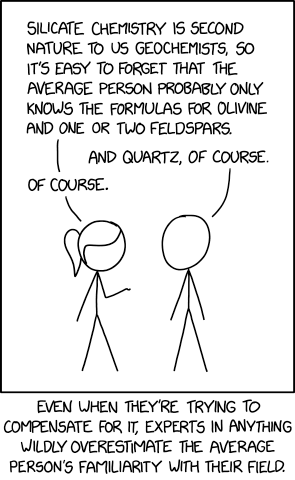- cross-posted to:
- videos@lemmy.world
- cross-posted to:
- videos@lemmy.world
So, Alec over the Technology Connections channel made an hour long video explaining the difference with kW and kWh (obviously with other stuff around it).
I’m living in northern Europe in an old house, with pretty much only electric appliances for everything. We do have a wood stove and oven, but absolute majority of our energy consumption is electricity. Roughly 24 000 kWh per year.
And, while eveything he brings up makes absolute sense, it seems like a moot point. In here absolutely everyone knows this stuff and it’s all just common knowledge. Today we went into sauna and just turned a knob to fire up the 6,5kW heaters inside the stove and doing that also triggered a contactor to disengage some of the floor heating so that the thing doesn’t overload the circuit. And the old house we live in pulls 3-4kW from the grid during the winter just to keep inside nice and warm. And that’s with heat pumps, we have a mini-split units both on the house and in the garage. And I also have 9kW pure electric construction heater around to provide excess heat in case the cheap minisiplit in garage freezes up and needs more heat to thaw the outside unit.
And kW and kWh are still commony used measurement if you don’t use electricity. Diesel or propane heaters have labels on them on how many watts they can output right next to the fuel consumption per hour and so on. So I’m just wondering if this is really any new information for anyone.
I assume here’s a lot of people from the US and other countries with gas grid (which we don’t really have around here), is it really so that your Joe Average can’t tell the difference between 1kWh of heat produced by gas compared to electricity? I get that pricing for different power sources may differ, but it’s still watt-hours coming out of the grid. Optimizing their usage may obviously be worth the effort, but it’s got nothing to do with power consumption.
So, please help me understand the situation a bit more in depth.
Full disclosure, I didn’t watch the video yet, but it’s likely a difference of environmental impact.
He’s described in previous videos how burning gas at home is less efficient from the standpoint of a carbon footprint. I imagine this video is to help explain everything in a way that helps you come to that conclusion yourself. Teach a man to fish instead of just giving a fish and what not. So you can apply the knowledge to other things in your life
New Technology connections video drops:

I’m going to go buy a kill-a-watt.
Do it, it teaches you things.
Most of your power isn’t going where you think.
Oh I love this stuff.
My dishwasher pulls over 1000W, but overall actual usage pales in comparison to my server cluster, which utilizes a multiple 35W mini PCs.
I started measuring a bunch of things in February (using zigbee-compatible smart plugs to HA), so here is a graph of the above for the entire month of March:

It was eye opening, to say the least.
Yeah, my rack is a beast too, especially since it runs 24/7.
I have PGE though, so I get absolutely reamed constantly, they play a lot of games so my solar helps me as little as possible.
Oh, I had a whole-house meter connected to my smart meter by zigbee, but then PGE disabled that a few years ago.
Worst part of california :(
I’m over here heating water in a kettle because of Technology Connections (and also pre-heating my dishwasher)
Its the midwest pragmatism that sells it.
I just do what he says because it sounds so practical.
I moved into a tiny home and got one for measuring the current draw of my kitchen appliances and keeping track of the cost of my electric space heater ($40/month so far, yeesh)
I started to watch this video and gave up mid way. It spends like 15 minutes on gas stoves. Maybe I’ll revisit it.
Btw, I really liked his other video on microwaves.
I haven’t watched it but its really simple. If you receive 1kW within 1hr and you compare that amount of power to 1kW over one second things are much different. The first is like a nice heater in a cold winter night…nice steady energy, a little bit of power. The second is like hell hole, tons of energy but still only a little bit of power. Power is the ability to do work or simply move things. Energy is the total amount of moving things regardless of the actual power used. So if you toasted a toast, that was a lot of power delivered quickly, but you could also do all that work slowly over centuries and eventually end up with the same molecular arrangement using the same amount of energy.
“1kW within 1hr” isn’t power. That’s energy.
“nice steady energy”? You mean nice steady power, right?
“The second is like hell hole, tons of energy but still only a little bit of power.” No. They are both precisely the same energy.
“So if you toasted a toast, that was a lot of power delivered quickly.” No. That is a lot of energy delivered quickly.
I typically wouldn’t be pedantic about this, except that this is precisely the point the video is making. These two unit types are often confused.
“1kW within 1hr” isn’t power. That’s energy.
The watt is always power, not energy. I’m assuming OP here got some prepositions mixed up and meant 1 kW delivered for 1 hr. That amounts to an energy of 1 kWh.
The second is like hell hole, tons of energy but still only a little bit of power.” No. They are both precisely the same energy.
No, they are the same power. The energy in the case where 1 kW of power is delivered for 1 hour is 1 kWh. The energy in the case of 1 kW delivered for 1 s is about 0.28 Wh.
If instead 1 kWh was transferred over the course of 1 hour, that is an average power of 1 kW (but does not have to be uniform, without more information we can’t know the power profile). If 1 kWh is transferred over the course of 1 s, that is an average power of 3.6 MW which is the example I think OP was getting at (ref. hell hole comment).
Saved you a click: power = rate of energy use (energy/time)
He says it so many times in so many ways that he actually starts to make it seem more complex than it is. You start wondering if you’re missing something, because you got it in 6 seconds but 12 minutes later he’s still talking about it.
deleted by creator
Power is water throughput in a pipe, energy is water filling a bucket. Simplest way I’ve found to explain it in my 15 years in the energy space.
Power is a measurement of the velocity and volume of water flowing through a pipe at a given instant*
I’m so sorry, I am officially ‘that guy’, taking a simple analogy and making it annoying…
Lol you’re completely right of course but when you start adding all this it is less relatable to someone who is not familiar with it already
I think it’s simple enough without even using analogies to explain. The unit Watt is Joules per second. Multiply by units of time and you get the total units of energy in Joules. Watt and Watt Hour are just that with without the additional units showing or being simplified.
I think you are greatly overestimating the basic functional knowledge of the general public…
kW/kWh aren’t commonly used outside of electrical applications in the US, so people are less readily able to quantify and compare in other contexts. Looking at a variety of natural gas companies’ bills, you’ll get volume multiplied by a therm factor instead of simply using kWh; horsepower for not just cars but even electrical motors and pumps.
I think the average person will have looked at their electricity bill and put the basics together about watts and watt hours. As for comparison with natural gas, I think he didn’t touch on the real metric people then turn to- cost. Depending on the state it can be much cheaper to use gas vs electricity.
Yeah, electric motors are what I notice the most. Be it on washers/dryers, garbage disposals (which range from 1/3, 1/2, 3/4, 1HP) and more.
After watching the video it was a bit over explained. I think he got his point across in the first 10 minutes, though I am an engineer by trade.
I appreciate his rigour in explaining and it is a good refresher on the power/energy calculations.

Also check out his other video on his Connextras channel where he basically suggests dismantling capitalism.
I sometimes make a conscious effort to understand electricity. For a few days, I then think I understand what’s going on and then promptly I forget.
(Yes, I shall watch this video.)
So I’m just wondering if this is really any new information for anyone.
It’s never wise to underestimate most people’s ignorance.
If you think the average person understands watts, you live in a bubble, straight and simple. You have a very skewed notion of the average person.
We live in a world where people demanded (and succeeded) in having the Meteorological Service of Canada to report windchill as “feels like C” instead of, ya know, a measure of actual heat loss in Watts / M^2 / s
You say that like it’s a bad thing? I prefer not to dust off my slide rule everytime I want to know how cold it is out.
The first time they did the feels like scale… My father’s colleagues were involved. They took a sample of people and put them in wind tunnels and sprayed them with water and said hey how’s it going over there.
I wish more than anything I was joking right now.
Yeah, just give me actual temp and wind speed, and I’ll get a feel for what’s cold by going outside.
Idk, I kind of like knowing how many layers of clothes I need to put on before I leave the house. Especially when the wind chill can make it feel like another -10°C pretty easily.
Same. I just look at the temp and wind speed and make an educated guess, erring on the side of more layers.
Yep that video is leagues beyond most peoples capabilities to understand. Thinking they already knew and understood it is crazy.
Explaining to people learning to cook that oil is liquid pan that carries heat is just too mind blowing. The simple shit is wayyyyyyyyyyyyyyyyyyyyyyyyyyyyy beyond the average smartwatch wearing doof
Nah, the video is pretty straightforward, but it’s presented in a way that most people would lose interest unless they’re actually into the subject matter. I see three problems with the video:
- it’s too long
- very few analogies
- mostly a talking head
Power vs energy is fairly simple with a good explanation. Power is simply the speed at which energy gets used up. For example:
- if you make a big campfire, it’ll use up your wood (energy) faster
- if you’re playing games on your phone, your battery (energy) will die sooner
- if you sprint, you’ll use up your energy faster than if you jog
That’s extremely intuitive. All a regular person needs to know is that simple concept, plus a way to measure it (the Kill-a-watt example). Boom, 5-10 min video.
But the talking head made it way more complicated by starting with gas. That’s just belabouring the point that you can increase or decrease power, which is already intuitive with batteries or things we can see (wood) or feel (tiredness).
They could then segue into gas, once the power vs energy issue is established. A can of butane is like a battery, and the valve (e.g. screen brightness, game vs texting) controls how quickly it’s used. We can compare gas and electricity directly because electricity can be turned directly into heat, just like gas can.
And then you segue into heat pumps. Basically explain how your AC/fridge works (i.e. moves heat instead of creating “cold”). Make a demo where you move heat vs create heat and show how much energy is used. As in, heat a room from 72F or whatever to 90F, one using a heat pump and the other using a space heater. Show how temps compare on both sides of the heat pump vs space heater (other rooms shouldn’t change w/ space heater). Then use that to show a real-world example of a house that swapped from furnace to heat pump to really drive the point home that moving heat is more efficient than creating it.
This is way beyond majority of peoples capabilities. Everything in your post and his video is, both are long too. Majority of people just do not care, otherwise we’d all be engineers.
The part about electricity is pretty short, just a few bullet points and a couple paragraphs. If it was video form, I could cover it in 2-3 min complete with visuals.
I don’t know why this video is so long.
All his videos are like that, he enjoys being long winded
In here absolutely everyone knows this stuff and it’s all just common knowledge.

Fair point, but basic physics has been a part of our education program for at least 60 years. Also for few years the ‘exchange priced’ or ‘market valued’ electricity has been somewhat popular and on the news, which adds up to the general understanding as if you know your stuff it means quite literal money as your bills are smaller. So, maybe ‘absolutely everyone’ is a bit of a stretch, but in general the majority of adult people understand the concept.
And also a ton of common folk understand it at least a bit on a deeper level as basic physics is included to studies beyond elementary school regardless on what you study. Sure, not everyone understands (or cares) how 3 phase AC in here adds up to 400V or why you need to have 2,5mm² wires for 16A fuse, but it’s still pretty common that people, specially in a separate house, understand how you can only pull 2300W out of a 10A circuit or 3600W from a 16A one (10 and 16A being the most common fuses in a household in here).













